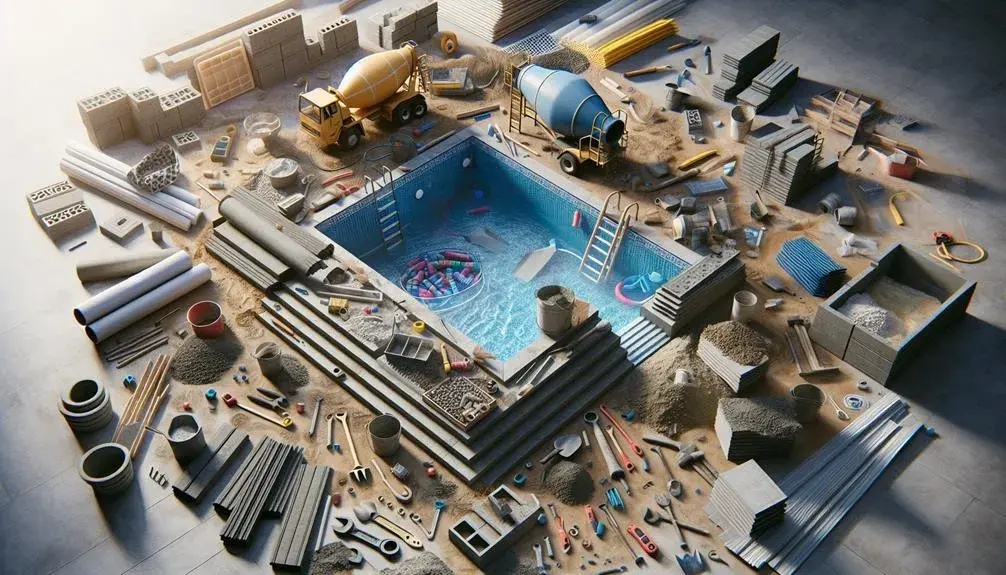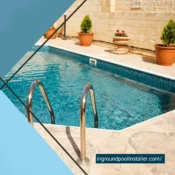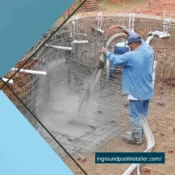What Every Inground Pool Installer Knows About Selecting Durable Pool Materials

What Every Inground Pool Installer Knows About Selecting Durable Pool Materials
In the realm of inground pool construction, the selection of robust and enduring materials is a critical and nuanced process—one that every seasoned inground pool installer is intimately familiar with. This selection process necessitates a deep understanding of the disparate materials available in the market, each with their unique attributes, advantages, and potential drawbacks.
A pool's durability, aesthetic appeal, and overall longevity are significantly influenced by this choice, hence the need for careful evaluation. This discussion aims to shed light on the key considerations that guide professional pool installers in their choice of materials, from their firsthand experience and industry knowledge.
To fully appreciate the complexity of this decision-making process, one must first comprehend the far-reaching implications of the material choice on the pool's lifespan, maintenance requirements, and visual allure.
Understanding Pool Material Durability
To fully appreciate the longevity of your swimming pool, it's crucial to delve into the subject of pool material durability, an aspect that significantly impacts its lifespan and performance. Pool materials, primarily comprising concrete, vinyl, and fiberglass, are selected based on their durability, maintenance needs, and aesthetic appeal. Concrete, though robust, requires regular upkeep. Vinyl, while less demanding, is susceptible to punctures. Fiberglass, on the other hand, boasts a seamless construction and requires minimal maintenance, albeit at a higher initial cost.
Understanding the durability of these materials allows for an informed decision when choosing your pool's construction material, ensuring you select one that resonates with your lifestyle, budget, and desired longevity. A durable pool material fosters a sense of belonging, epitomizing a lasting investment in your home's appeal and functionality.
Choosing the Best Inground Pool Materials
Having garnered an understanding of the durability of various pool materials, it is now imperative to focus on how to choose the best inground pool materials suitable for your needs. Several factors come into play - local climate, intended usage, aesthetics, and budget.
For colder climates, concrete or fiberglass offer better frost resistance. If your pool will see heavy use, durable materials like concrete or gunite are recommended. Decisions on aesthetics are subjective, yet materials like vinyl or fiberglass offer a wide array of design options.
Budget, a crucial factor, will dictate your choice significantly. While vinyl is cost-effective, concrete or gunite, though more expensive, offer longevity. Ultimately, selecting the best material requires a careful balance of these considerations, and guidance from a skilled inground pool installer can be invaluable in this process.
All Categories
- Concrete
- Concrete
- Concrete pools
- Construction
- Custom Features and Add-ons
- Design
- Design
- Design
- Design & Construction
- Design and Planning
- Features & Customization
- Infinity edge
- inground pool
- inground pool builder
- inground pool installer
- Installation
- Installation Process
- Legal & Administrative
- Materials
- planning and design
- Pool Aesthetics and Customization
- Pool Design
- Pool Equipment
- Pool Features
- Pool Features
- Pool Installation Process
- Pool Materials
- Pool Materials
- Pool Types
- Project Planning
- Renovation
- Resurfacing
- top sights
- Types of Inground Pools
- Types of Inground Pools
- Types of Inground Pools
- Types of Inground Pools
- Water Treatment



